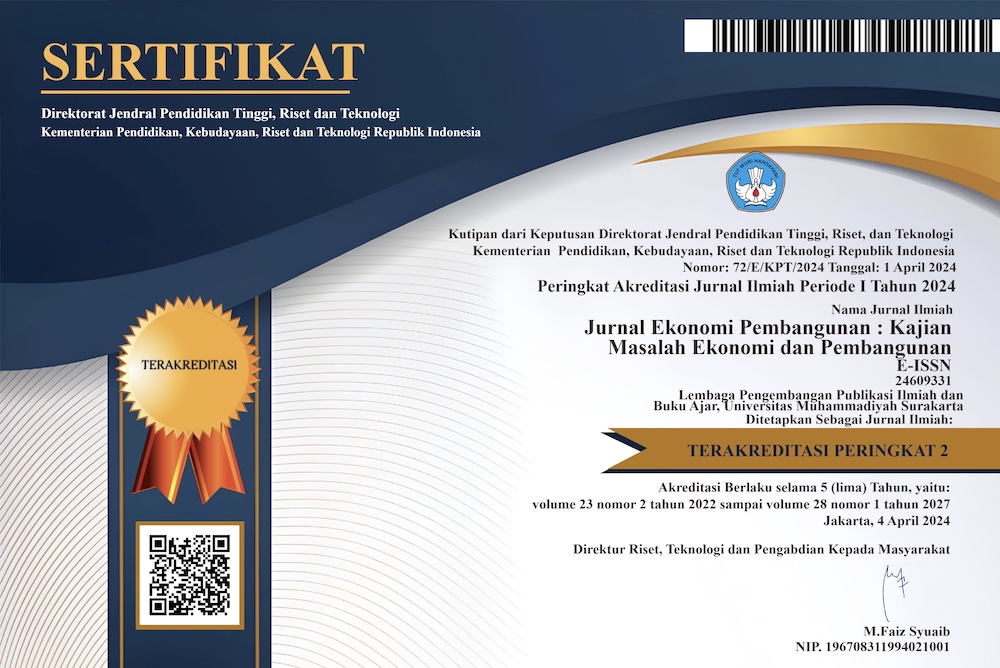The Effect of Taste on Papuan Local Consumption
DOI:
https://doi.org/10.23917/jep.v23i2.19081Keywords:
Local Food, Papua, Taste, QUAIDS-ILLSAbstract
This study aims to determine the effect of tastes on local food consumption in an econometric analysis of the food demand structure in Papua Province. This study used the 2019 National Social and Economic Survey (SUSENAS) with 13.151 households conducted by Statistics Indonesia (BPS). The method used is Quadratic Almost Ideal Demand System (QUAIDS) with Iterated Linear Least Square (ILLS) estimator. The results show that education, household size, location, age, the job of the head of the household, and income group affect local food consumption. When urbanization, education, and income increase, they tend to reduce local food consumption and shift food choices from local food because it is difficult to obtain. The influence of taste from the socio-demographic side has different taste factors between urban and rural. Therefore, the government needs to increase understanding through education about food diversity and good nutrition because local food has a higher nutritional content than rice or other foods. In addition, it is necessary to increase the horizontal diversification of local food, provision a market for local-food distribution, and increase income because the economic condition in Papua is still low, so they are vulnerable to food security.















